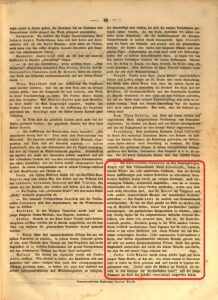In the January 30, 1850, edition of the Neue Berliner Musik Zeitung—a prominent German newspaper dedicated to music—an intriguing account appeared on page 39. The article recounted the experiences of the renowned pianist, Levy, during his recent travels to Istanbul, which proved to be a pivotal moment in his musical career.

According to the report, Levy had the honor of performing for the Sultan at his palace, an opportunity that not only allowed him to display his musical talents but also led to a fascinating exchange. As a token of appreciation, the Sultan presented Levy with a collection of 40 Turkish melodies, written down for his convenience. However, the article noted a skepticism regarding the authenticity of these tunes, suggesting they were likely nothing more than Janissary music—military-style compositions known for their bold, fanfare-like sound that could often be heard in the streets.
The real discovery, however, occurred during Levy’s return journey, when he encountered an elderly Yazidi man who had recently emigrated from Kurdistan. This meeting proved to be a revelation. The man shared with Levy a melody from the Kurdish tradition, a maqam that moved Levy deeply. Unlike the brashness of Janissary music, this Kurdish melody was rich, nuanced, and emotionally resonant, standing in stark contrast to the other Eastern compositions Levy had encountered.
Levy, captivated by the beauty and complexity of this melody, remarked that it was one of the most ancient musical traditions still alive today. He hailed Kurdish music as a true gem of human heritage—an art form that had endured through the ages, surviving the vicissitudes of history and continuing to touch the hearts of those fortunate enough to experience it.
This account from Levy’s perspective highlights not only the cultural richness of Kurdish music but also its deep roots in the ancient musical traditions of the East, offering a poignant reflection on the timeless beauty of Kurdish melodies.
By Bakr Shwani

